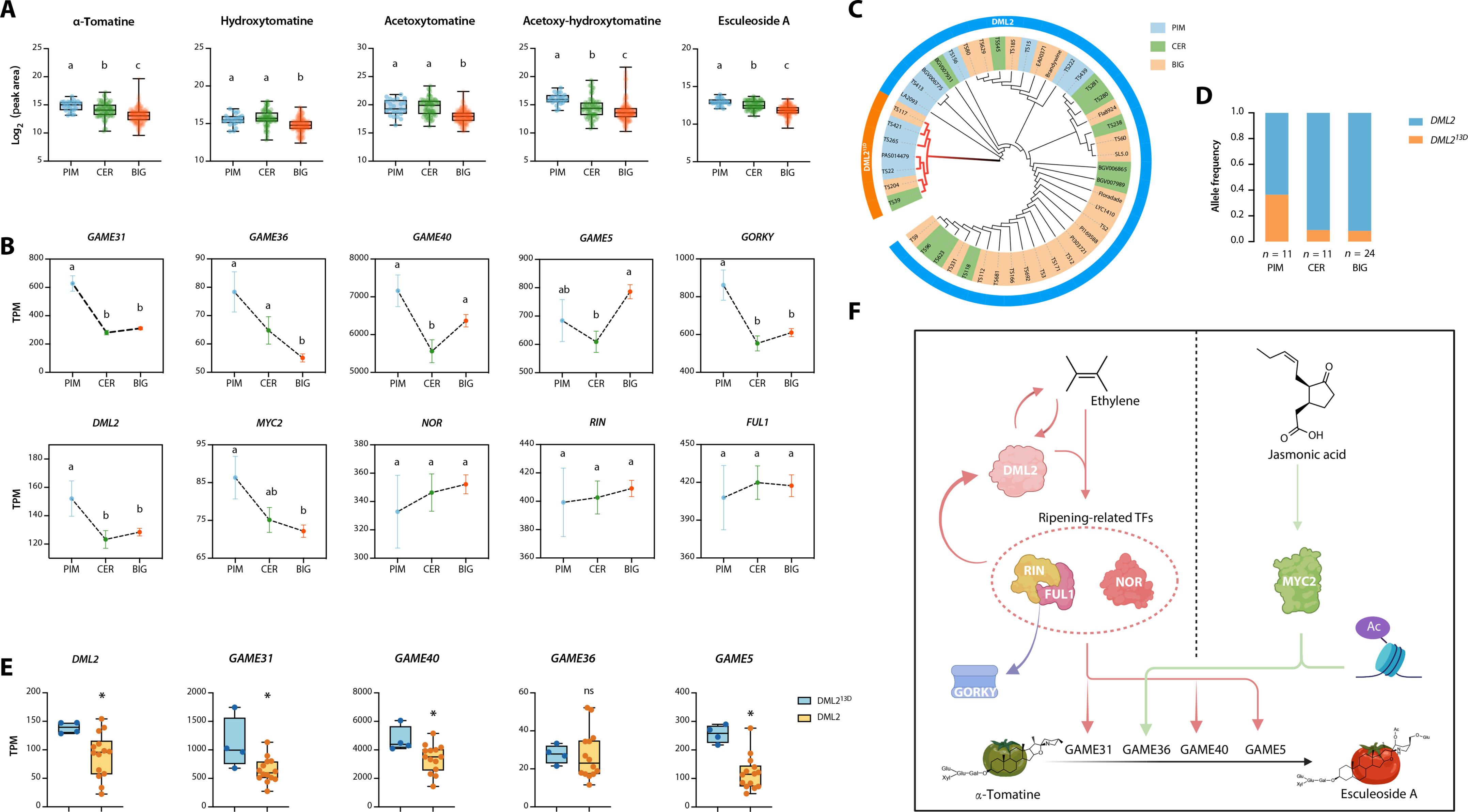番茄中有毒甾体糖生物碱和苦味的去除受复杂的表观遗传和遗传网络控制
IF 12.5
1区 综合性期刊
Q1 MULTIDISCIPLINARY SCIENCES
Science Advances
Pub Date : 2025-02-19
引用次数: 0
摘要
茄科作物(包括番茄)中产生的甾体糖生物碱(SGAs)具有抗营养作用,因为它们的细胞毒性和由此产生的对人体的苦味。为了使果实可口,在成熟过程中,SGA谱从苦味和有毒的α-番茄素转变为无苦味和无毒的esculeoside A。然而,调控这种转化的机制仍不清楚。在这项研究中,我们发现有毒和苦味SGAs的去除受到DNA去甲基化、乙烯和关键转录因子的控制,形成了一个反馈回路,控制着成熟过程中关键糖生物碱代谢(GAME)基因的表达。此外,乙烯诱导的转录因子NON-RIPENING、RIPENING INHIBITOR和FRUITFULL1协同调节GAME31、GAME40、GAME5和糖生物碱转运基因GORKY的表达,而茉莉酸诱导的MYC2调节GAME36的转录。此外,在番茄驯化过程中,由DEMETER-LIKE 2介导的DNA去甲基化驱动SGA解毒。本文章由计算机程序翻译,如有差异,请以英文原文为准。

Removal of toxic steroidal glycoalkaloids and bitterness in tomato is controlled by a complex epigenetic and genetic network
The steroidal glycoalkaloids (SGAs) produced in Solanaceae crops, including tomato, are antinutritional because of their cellular toxicity and resultant bitter taste to humans. To make fruits palatable, SGA profiles shift from bitter and toxic α-tomatine to nonbitter and nontoxic esculeoside A during the ripening process. However, the mechanisms regulating this conversion remain unclear. In this study, we showed that removal of toxic and bitter SGAs is under the control of DNA demethylation, ethylene, and key transcription factors by forming a feedback loop that governs the expression of key GLYCOALKALOID METABOLISM (GAME) genes during ripening. Moreover, the ethylene-inducible transcription factors NON-RIPENING, RIPENING INHIBITOR, and FRUITFULL1 coordinately regulate the expression of GAME31, GAME40, GAME5, and the glycoalkaloid transporter gene GORKY, whereas jasmonic acid–induced MYC2 modulates the transcription of GAME36. Furthermore, DNA demethylation mediated by the DEMETER-LIKE 2 drives SGA detoxification during tomato domestication.
求助全文
通过发布文献求助,成功后即可免费获取论文全文。
去求助
来源期刊

Science Advances
综合性期刊-综合性期刊
CiteScore
21.40
自引率
1.50%
发文量
1937
审稿时长
29 weeks
期刊介绍:
Science Advances, an open-access journal by AAAS, publishes impactful research in diverse scientific areas. It aims for fair, fast, and expert peer review, providing freely accessible research to readers. Led by distinguished scientists, the journal supports AAAS's mission by extending Science magazine's capacity to identify and promote significant advances. Evolving digital publishing technologies play a crucial role in advancing AAAS's global mission for science communication and benefitting humankind.
 求助内容:
求助内容: 应助结果提醒方式:
应助结果提醒方式:


